Current Projects
Country: Zimbabwe
Showing 1 - 22 of 22
22 results found
Project Objective: To promote a Wildlife Economy approach that benefits people and strengthens wildlife management in the CAMPFIRE areas in Tsholotsho District.
To fast-track readiness and early actions to implement the post-2020 Global Biodiversity Framework by providing financial and technical support to GEF-eligible Parties to the Convention on Biological Diversity (CBD) in their work to review and align their national targets, NBSAPs, policy frameworks, monitoring frameworks and finance with the Global Biodiversity Framework.
To support forty-three (43) developing countries to prepare and submit Biennial Transparency Reports (BTRs) and National Communications (NCs) that comply with the United Nations Framework Convention on Climate Change (UNFCCC)/Paris Agreement (PA) reporting requirements; and respond to their national development goals.
To enhance national-level institutional and technical capacities for the 2021-2022 UNCCD reporting process in the context of the UNCCD Strategic Framework 2018-2030 and SDG15.3
Facilitate the implementation of the Stockholm Convention in participating countries through the development, review and update of the NIPs and submission to the Conference of the Parties (COP) of the Convention
To assist Zimbabwe to comply with the requirements of the Enhanced Transparency Framework under the Paris Agreement on Climate Change.
To assist GEF-Eligible Parties to the Cartagena Protocol on Biosafety to prepare and submit their Fourth National Reports on measures that each Party has taken to implement the Cartagena Protocol on Biosafety
To enable country Parties to collect necessary biophysical, socioeconomic data, establish sound reporting and monitoring systems at national level and report against the UNCCD Strategy
To provide financial and technical support to GEF-eligible Parties to the Convention on Biological Diversity (CBD) in their work to develop high quality, data driven sixth national reports (6NR) that will improve national decision-making processes for the implementation of NBSAPs; that report on progress towards achieving the Aichi Biodiversity Targets (ABTs) and inform both the fifth Global Biodiversity Outlook (GBO5) and the Global Biodiversity Strategy of 2021 – 2030.
To support eighteen (18) developing countries prepare and submit National Communications (NCs) and Biennial Update Reports (BURs) that comply with the UNFCCC reporting requirements while responding to national development goals
To contribute to improved health and environment through strengthening national and regional institutions, and implementing priority chemicals and waste related interventions
Development of National Action Plans to reduce the use of mercury and mercury compounds in, and the emissions and releases to the environment of mercury from, artisanal and small-scale gold mining and processing is facilitated by the use of scientific and technical knowledge and tools by national stakeholders in participating countries.
To reduce environmental and human health risks from PCB releases through the demonstration of a regional approach to the introduction of cost-effective and socially acceptable environmentally sound management (ESM) of PCB oils, equipment and wastes held by electrical utilities and other PCB owners in participating countries.
To strengthen national capabilities for implementation and scaling up of evidence-based, innovative, diversified and environmentally sound disease vector control interventions (with special emphasis on malaria) with multi-stakeholder participation within context of IVM
To Assist GEF-Eligible Parties to the Cartagena Protocol on Biosafety to prepare and make timely submission of their Third National Reports on measures that each party has taken to implement the Protocol in line with Article 33
Ratification and early implementation of the Minamata Convention is facilitated by the use of scientific and technical knowledge and tools by national stakeholders in participating countries
Nine countries prepare and submit intended nationally determined contributions (INDCs) to the 2015 United Nations Framework Convention on Climate Change (UNFCCC) Agreement and have institutional arrangements in place that support the INDC process
To support Zimbabwe in meeting its obligation to the UNCCD Convention through Alignment of NAP with the 10 – Year Strategy and reporting and review process for the UNCCD
To Assist GEF-Eligible Parties to the Cartagena Protocol on Biosafety in Africa to prepare and make timely submission of their Second National Reports on measures that each party has taken to implement the Protocol in line with Article 33
Reduce the import, production and use of POPs in plastic-containing products in the automobile, construction and electronics sectors, and the generation of uPOPs
To improve the artisanal and small scale gold mining (ASGM) sector in Zimbabwe through increased formalization, access to finance and markets, introduction to mercury free technologies and management of knowledge
Accelerating the introduction of electric mobility in Zimbabwe with a focus on reducing GHG emissions, improving air quality and the environmentally sound management of EV waste.
Showing 1 - 22 of 22




